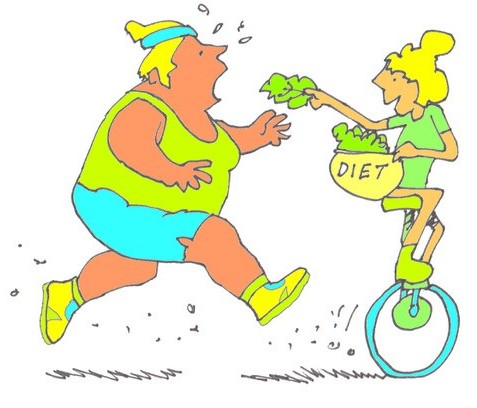Recent Advances – Weight Management Pt 3
This is the last time that I will bend your ears about the problem on overweight and obesity – for the time being at least.
Is obesity a disease?
The debate rages on – is obesity a disease or a lifestyle choice? The elephant behind the sofa is the blame game. Anti-obesity rhetoric is riddled with negativity and stigma – the belief that obesity is “lazy, sloppy, unintelligent and unattractive”. There have been some helpful changes – it is now more acceptable to refer to “people living with obesity” rather than “obese people” and the adjective “fat” is almost completely absent from clinical publications.
A renaming of obesity has been suggested but there have been few sensible suggestions – what about “Chronic appetite and dietary intake dysregulation”?!
Possible causes
It is certainly a myth that obesity is simply down to a lack of moral fibre or willpower – but the rub is that application of willpower is an effective weapon in preventing or treating obesity. However people living with obesity are often handicapped by inherited predispositions. The main one is the lack of ability to sense when the stomach is sufficiently full – the inability to recognise satiety. This is at least in part due to lack of a hormone called Leptin. It is also associated with genetic influences on brain function and the neurological circuits involved in the satisfaction of hunger. These genetic influences account for up to 75% of the differences in BMI and are mediated by a great many different genes. About a dozen of these genes are thought to have a large effect.
Of course the rise in obesity over the past few decades is not caused by any change in our genetic make up. What have changed are the make-up of what we eat and the amount of exercise we take.
What we eat
When it comes to diet, it is not just an increase in calories consumed. The total calorie consumption of our population has actually come down a bit over the past 50 years. However the nature of what we eat has changed with increased production of ultra-processed food and the lacing of manufactured foods and drinks with high fructose syrup. These elements of what we consume have a higher calorie availability – more of the calories are absorbed. Added to that are our tendency to eat out more and to consume larger portions.
The Exercise We Take
We take much less occupational exercise. We need to move much less to earn our daily crust – occupational energy expenditure has reduce by more than 30% over the past 50 years. We have the boon of motorised transport – the car, bus and bicycle are taking the place of shank’s pony. The mobile phone is replacing all sorts of sporting activities and exercise, particularly in children and adolescents. This has been aggravated by the selling of school playing fields. And our involvement in sports has changed from participating to spectating.
Losing weight
Losing excess weight is always extremely difficult. Diets just don’t work for the vast majority – see my last blog which describes the problems of weight cycling. When weight is lost and then regained, the usual result of dieting, the end result is a loss of fat-free mass resulting in more fat and less muscle mass. This has recently been shown in a trial of dieting in 600 participants (1). Among those who lost and then regained weight, the change in body composition was equivalent to the effect of about ten years ageing.
We also eat a great deal more than we think – about 50% more in some surveys. By the time we have become adults it is really hard to change what we eat. We are hard wired into what we like and are used to. The best advice is to stick to what you like but just eat less of it! – so called portion control.
More exercise should help – but it takes a great deal more exercise than most people believe. To have any impact you need to take at least double the level of exercise recommended by the DoH. That means more than 300 minutes of moderate exercise per week, not the recommended 150 minutes.
So to lose weight, these are my hot tips:
- Eat smaller portions
- Exercise more than you think you need to – and do lots of fidgeting, a greatly under-recognised physical activity.
(1) T Yates et al. Impact of weight loss and weight gain trajectories….Diabetes, Obesity and Metabolism Early View. 14 Dec 2023
Subscribe to the blog
Categories
- Accelerometer
- Alzheimer's disease
- Blood pressure
- BMI
- Cancer
- Complications
- Coronary disease
- Cycling
- Dementia
- Diabetes
- Events
- Evidence
- Exercise promotion
- Frailty
- Healthspan
- Hearty News
- Hypertension
- Ill effects
- Infections
- Lifespan
- Lipids
- Lung disease
- Mental health
- Mental health
- Muscles
- Obesity
- Osteoporosis
- Oxygen uptake
- Parkinson's Disease
- Physical activity
- Physical fitness
- Running
- Sedentary behaviour
- Strength training
- Stroke
- Uncategorized
- Walking



An interesting straightforward blog. Simply overeating, snacking or eating the wrong foods or overeating are clearly problematic but when coupled with aging, disability of one sort or another or medical problems, the medical and physical difficulty of losing weight becomes worse. I am 88 . I have never seen an excrcise book or on eating in old age.